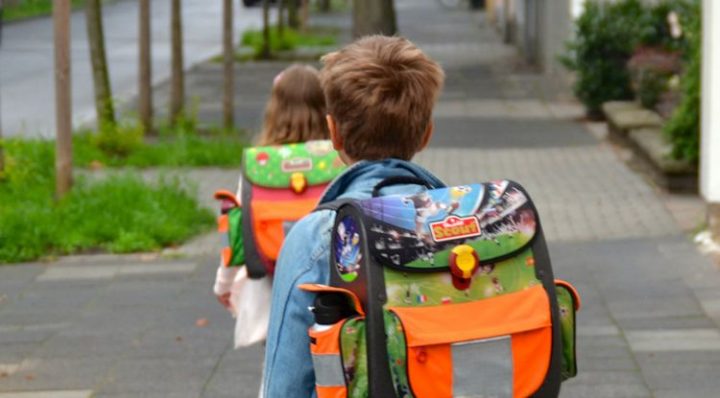After a month-long stalemate, the governing parties have finally achieved and agreed on a compromise on the so-called basic child security. In addition to the government's obvious and well-known inability, it is also striking in this respect that poverty is in no way reduced, limited or even combated by the new regulations.
The figures on child poverty in Germany differ relatively greatly from one another, depending on who collects and evaluates the figures and, in particular, with what intention this is done. In the draft bill on basic child security, which was unofficially made public, it is said, for example, that so-called “relative child poverty” has been high in Germany for years and last year every fifth child was threatened or affected by poverty.
Furthermore, there is a so-called "at-risk-of-poverty rate". According to this, those who have less than 60 percent of the median income of the entire population are considered to be at risk of poverty. According to the Federal Statistical Office, this applied to almost 2,200,000 or 15 percent of children and young people under the age of 18 last year.
Then there is the so-called "material deprivation". A catalog of criteria is used to check what children have and what they don't, such as reasonable food or games and digital communication options. According to the criteria defined by the European statistical office Eurostat, six percent of all children under the age of 16 in Germany were affected by material deprivation in 2021.
There are more figures: According to the Federal Statistical Office, around a quarter of under-18s in Germany were affected by poverty or social exclusion in 2022. The EU average is 24.7 percent. Two thirds of all EU countries have lower poverty rates than Germany.
All studies show that poverty is a serious problem, especially in single-parent households (usually means single mothers) or in families with three or more children (usually means families from abroad). The number of beneficiaries under the age of 18 with foreign citizenship has more than doubled in the last seven years from 366,000 to around 933,000 in March 2023.
A study by the Bertelsmann Foundation from 2021 showed that there is also a regional distribution of poverty in Germany. According to this study, children in Bremen are most at risk of poverty, followed by Saxony-Anhalt and North Rhine-Westphalia.
According to figures from the Federal Employment Agency, 1.85 million under-18s received in 2022 Basic security benefits from the state. In March of this year, around 1.96 million children and young people lived in households with citizens' income recipients. That's 110,000 more young people in three months.
Finance Minister Christian Lindner (FDP) recently made a relatively clumsy and therefore publicly criticized attempt to play local and foreign families off against each other. Lindner reiterated his convictions in this regard: "In any case, I'm not convinced that simply giving more money to parents necessarily improves the chances of children and young people." Now that the governing coalition has reached an agreement, there will be no (general) increases in benefits. The demands made public started with twelve billion euros. Then it was seven, in the meantime also about five. Then welfare and social organizations demanded around 20 billion. Most recently, the ministry spoke of the need for 3.5 billion. In the end, it is now around 2.4 billion euros.
That the government cannot and will not alleviate the suffering and misery of the youngest members of society has a system. This is exactly what inflation, which has been promoted by the zero interest rate policy for years and which has meanwhile gotten out of control, is intended for this. To further impoverish the broad masses of the people and thus dump the burden of their crisis on the shoulders of the masses.











